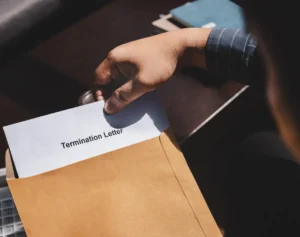Call Today: 949-569-7224
Call Today: 949-569-7224
When employment relationships are terminated, especially under questionable circumstances, it is essential to understand the legal considerations involved. At Bear Law, based in the beautiful Laguna Niguel, California, we recognize that wrongful termination is a significant issue affecting many employees in our community. This blog aims to shed light on how much one can sue for wrongful termination in California, what factors influence the potential compensation, and why consulting with a qualified wrongful termination lawyer can be beneficial.

In California, wrongful termination occurs when an employee is fired in violation of federal or state laws, employment agreements, or established company policies. Common reasons for wrongful termination include discrimination based on race, gender, age, or disability, retaliation for whistleblowing, or violations of labor laws.
It's essential to recognize that employees have rights, and when those rights are violated, legal recourse is available whether you live in or around Laguna Niguel, or anywhere else in California. However, before contemplating how much you can sue for wrongful termination, it is important to grasp the basics of the unlawful termination process and the grounds for initiating a lawsuit.
Wrongful termination cases can arise from a variety of circumstances where an employee is fired in violation of legal rights or contractual agreements. Here are some common examples:
When you sue for wrongful termination, average settlements in California can vary widely based on several factors, including the specifics of the case, the damages incurred, and whether the case goes to trial or settles beforehand. Here are some general insights:
Average settlements typically range from $5,000 to several hundred thousand dollars. Minor cases may settle for $10,000 to $25,000, while more severe cases involving significant emotional distress or discrimination can settle for $100,000 or more.
In cases with strong evidence of discrimination or retaliation, punitive damages may come into play, leading to settlements that can exceed $500,000 or even reach into the millions, particularly in high-profile cases.
It's worth noting that wrongful termination cases often settle out of court, making it challenging to pinpoint exact averages. However, anecdotal evidence suggests that average settlements might hover around $50,000 to $100,000.
Overall, the variability in settlements underscores the importance of consulting with an employment lawyer to assess individual circumstances and potential outcomes in wrongful termination cases in California.
The amount one can sue for wrongful termination in California can vary widely based on several factors. Here are some key elements that typically influence potential compensation:
Yes, punitive damages can be awarded in wrongful termination cases, but they are not guaranteed and are typically reserved for situations where the employer's conduct is found to be particularly egregious or malicious. Here are some key points regarding punitive damages:
In summary, while punitive damages are possible when you sue for wrongful termination, they depend on the specifics of the case and the employer's conduct.
It is important to note that California has a statute of limitations for filing wrongful termination compensation claims, generally set at two years for most claims. However, claims involving discrimination may need to be filed within a shorter, specific timeframe. Consulting with an employment lawyer can help clarify these timelines and ensure that your rights are protected.
Suing for wrongful termination in California involves several key steps. Here's a concise guide to help you navigate the process:
Each wrongful termination case is unique, and the legal process can be complex. Consulting with an employment lawyer can provide tailored guidance and help protect your rights throughout the proceedings.
When faced with the challenging circumstances of figuring out how to sue for wrongful termination, hiring an employment lawyer is a crucial step. At Bear Law, our experienced employment attorneys can help navigate the complexities of the legal process, gather evidence, and represent your interests effectively. We understand the nuances of California's employment laws and can provide valuable insights into the viability of your claim.
At Bear Law, we understand the complexities and emotional toll of wrongful termination cases. Our dedicated team is committed to fighting for your rights and ensuring you receive the compensation you deserve. If you believe you have been wrongfully terminated, let us guide you through the legal process with expertise and compassion. Contact Bear Law today to discuss how much you can sue for wrongful termination and explore your options for justice.
Attorney Advertising | Prior results do not guarantee a similar outcome. The information on this website is for general information purposes only. Nothing on this site should be taken as legal advice for any individual case or situation. This information is not intended to create, and receipt or viewing does not constitute, an attorney-client relationship. This site is protected by reCAPTCHA and the Google Privacy Policy and Terms of Service apply.